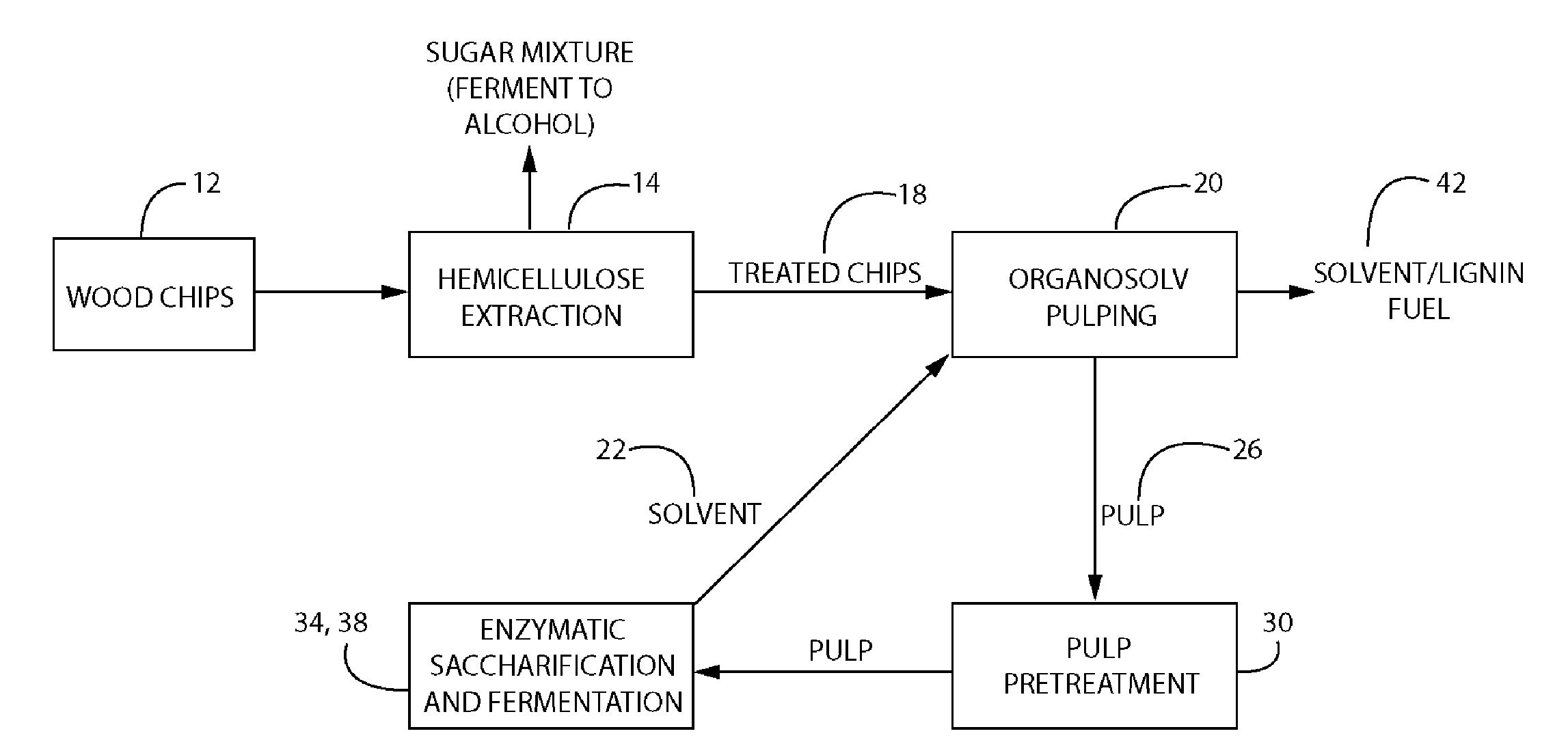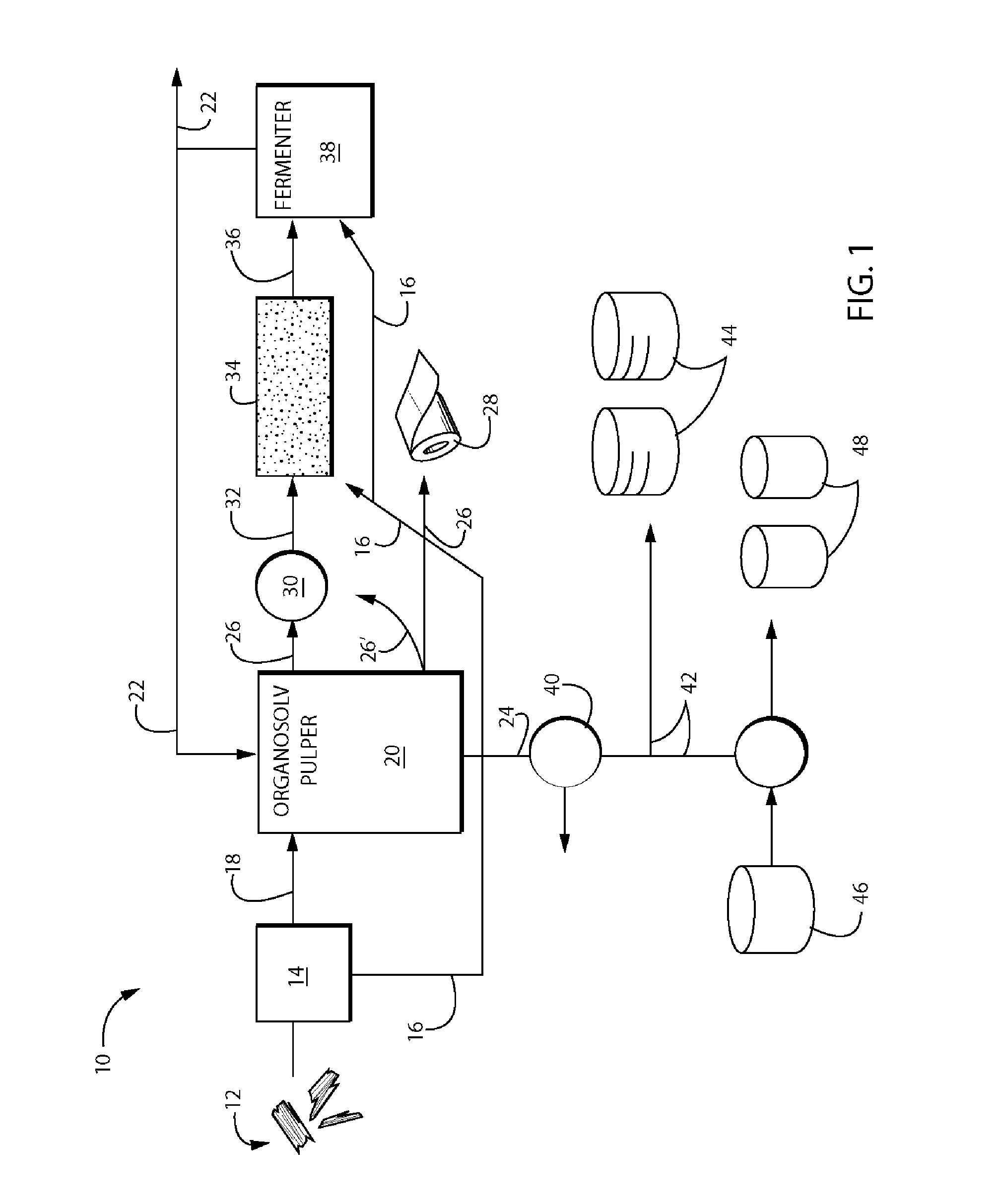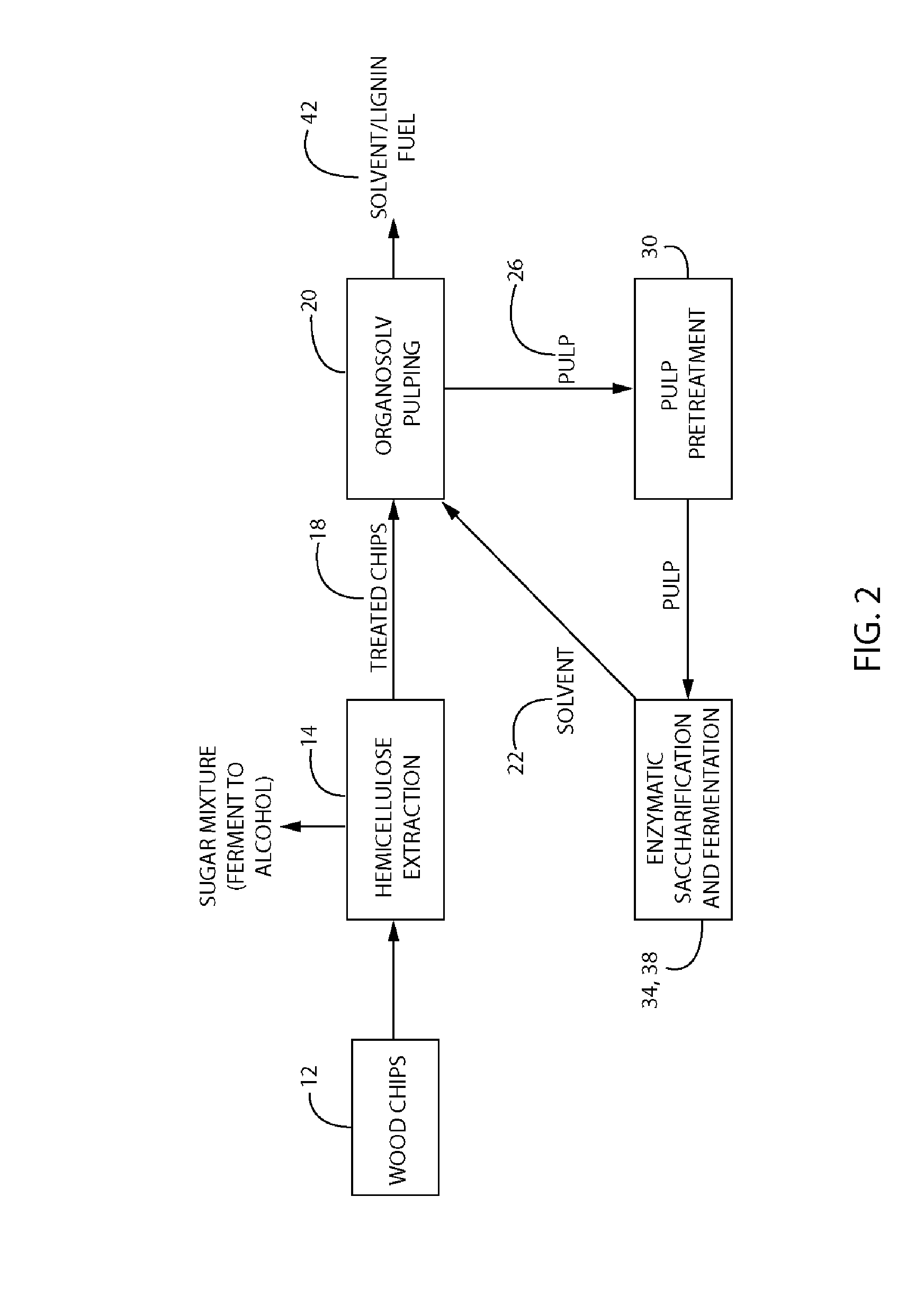Lignin-Solvent Fuel and Method and Apparatus for Making Same
a technology of solvent fuel and lignin, which is applied in the field of liquid biofuels to achieve the effects of reducing the need for energy-intensive distillation, and facilitating and efficient solvent production
- Summary
- Abstract
- Description
- Claims
- Application Information
AI Technical Summary
Benefits of technology
Problems solved by technology
Method used
Image
Examples
Embodiment Construction
[0021]Referring now to the drawing figures in which like reference numerals designate like numerals throughout the disclosure, FIG. 1, a lignin-solvent biorefinery 10 is illustrated that can accept any kind of lignocellulosic biomass or plant fiber 12, for example, from hardwood or softwood trees, bioenergy crops such as Miscanthus or switch grass, agricultural refuse such as sugar cane, corn stover, or wheat straw, and from other sources such as flax, jute, switch grass, and kenaf, among others. These cellulose plant fiber materials 12 may be chipped, chopped and / or ground to an appropriate size and received by a pre-treater 14 to remove hemicellulose 16 from the biomass or plant fiber 12 according to techniques well known in the art for use with various types of plant fiber 12, such as by utilizing steam or dilute acid. Hemicelluloses are easy to remove via the pre-treater 14 and their absence will simplify the rest of the process and eliminate the complicated downstream separatio...
PUM
 Login to View More
Login to View More Abstract
Description
Claims
Application Information
 Login to View More
Login to View More - R&D
- Intellectual Property
- Life Sciences
- Materials
- Tech Scout
- Unparalleled Data Quality
- Higher Quality Content
- 60% Fewer Hallucinations
Browse by: Latest US Patents, China's latest patents, Technical Efficacy Thesaurus, Application Domain, Technology Topic, Popular Technical Reports.
© 2025 PatSnap. All rights reserved.Legal|Privacy policy|Modern Slavery Act Transparency Statement|Sitemap|About US| Contact US: help@patsnap.com



